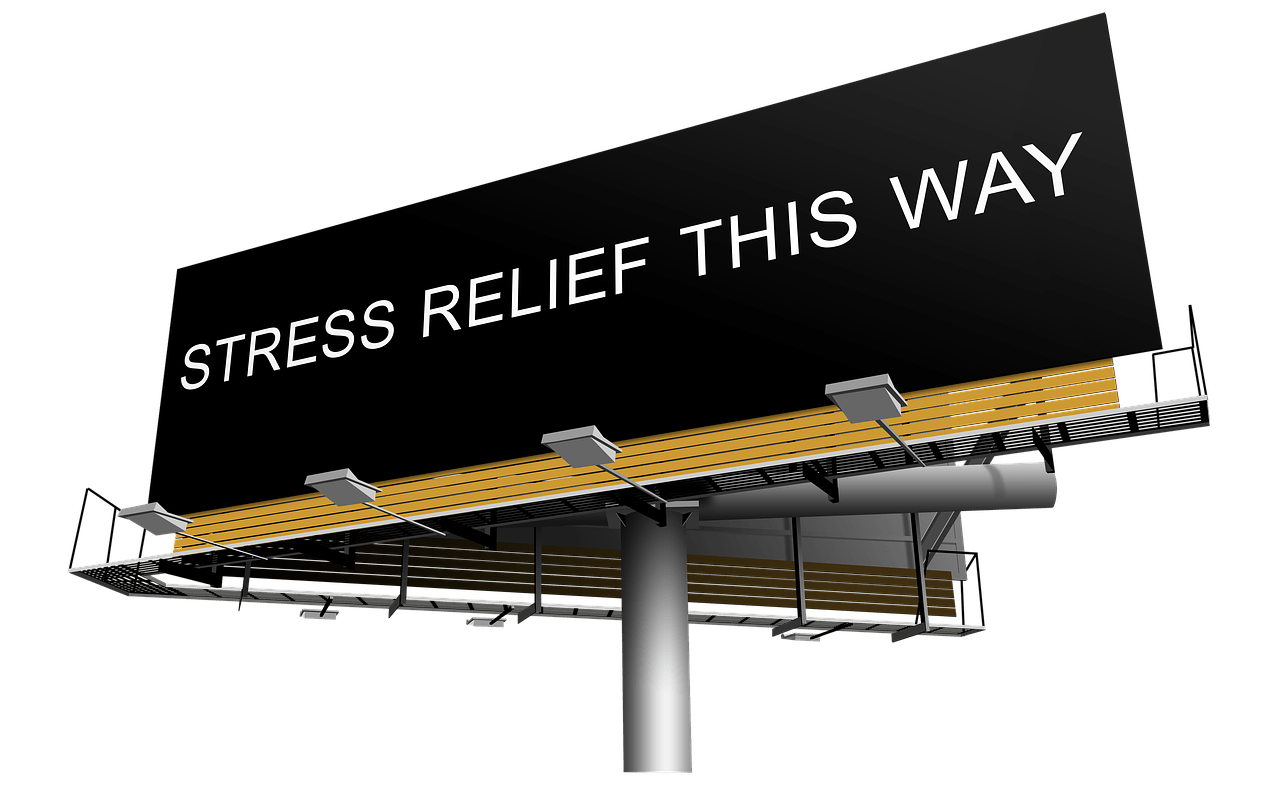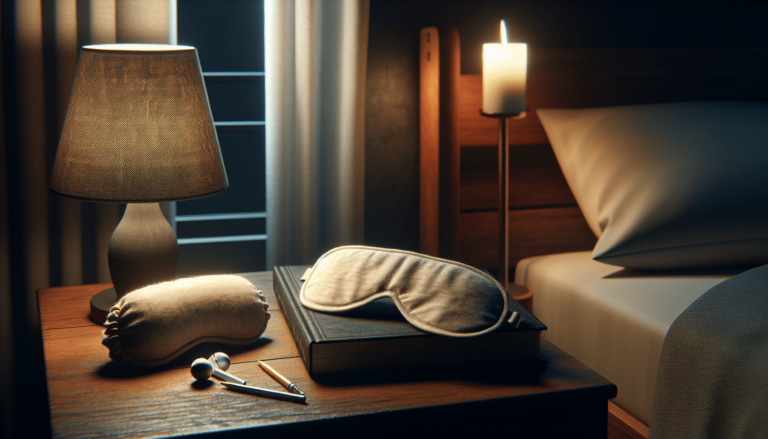How Does Stress Contribute To Sleeping Issues In Busy Adults?

Stress can wreak havoc on your sleep patterns, especially if you’re a busy adult juggling multiple responsibilities. Perhaps you’ve experienced those nights where your mind races through tomorrow’s to-do list, preventing you from falling asleep. Stress triggers your body’s fight-or-flight response, releasing cortisol and other stress hormones that can make it difficult to relax. Over time, this heightened state of alertness can lead to chronic insomnia and other sleep disorders. For those struggling with this issue, Vector Sleep Diagnostic Center offers a beacon of hope. Led by Dr. Dmitriy Kolesnik, a seasoned expert in Sleep Medicine and Neurology, the center provides tailored solutions for sleep disorders, helping you reclaim restful nights and improve your overall well-being. Have you ever found yourself lying in bed, staring at the ceiling, unable to fall asleep despite feeling utterly exhausted? If this sounds all too familiar, you’re not alone. Many busy adults struggle with sleep issues, often linked to the unavoidable stress that comes with a hectic lifestyle. But how exactly does stress contribute to sleeping issues in busy adults? Let’s take a deep dive into this question.
Understanding Stress and Its Impacts
First, it’s essential to understand what stress is and how it can impact your life. Stress is a natural response of the body to any demand or threat. When you encounter a stressful situation, your body goes into “fight or flight” mode, releasing stress hormones such as adrenaline and cortisol.
While this response is beneficial in short bursts, chronic stress can lead to a multitude of health problems, including disrupted sleep patterns. Let’s break down how stress can wreak havoc on your sleep.
The Physiology of Stress
When you’re stressed, your body releases certain hormones that prepare you for action. This is helpful in emergencies but not so much when trying to get a good night’s sleep. High levels of adrenaline and cortisol make it difficult for your body to relax, making it much harder to fall asleep or stay asleep.
The Vicious Cycle of Stress and Sleep
The relationship between stress and sleep is complex and often forms a vicious cycle. When you’re stressed, it can be challenging to sleep well. Poor sleep, in turn, increases stress levels, creating a loop that can be hard to break. Understanding this cycle is the first step toward finding a solution.
How Stress Affects Sleep Architecture
Sleep architecture refers to the structure of your sleep, including the various stages you cycle through during the night. Stress can significantly impact this intricate structure, leading to several types of sleep disturbances.
Delayed Sleep Onset
One of the most direct ways stress affects sleep is by delaying sleep onset. This is when you find it difficult to fall asleep after lying down. Stress keeps your mind racing, making it challenging to switch off and drift into sleep.
Reduced Slow-Wave Sleep
Slow-wave sleep (SWS) is the deep, restorative sleep that your body needs to recover. Stress can reduce the amount of time you spend in this crucial sleep stage, leading to feelings of fatigue and sluggishness even if you’ve spent adequate time in bed.
Increased Night Wakings
Stress can also result in more frequent night wakings. Each time you wake up, it can be challenging to fall back asleep, leading to fragmented sleep that doesn’t leave you feeling rested.
Altered REM Sleep
Rapid Eye Movement (REM) sleep is another critical phase, primarily associated with dreaming and cognitive processing. Stress can lead to either reduced or increased REM sleep, affecting overall sleep quality and mental functioning.
Psychological Factors and Stress
The mental aspect of stress plays a crucial role in how it impacts your sleep. Understanding these psychological factors can help you take steps to mitigate them.
Anxiety and Worry
Stress often accompanies anxiety and excessive worrying. When your mind is preoccupied with problems from work or personal life, achieving sleep becomes a challenge. Cognitive-behavioral strategies may help manage anxiety and facilitate better sleep.
Emotional Regulation
Stress can also hamper your ability to regulate emotions. Heightened emotional states make it challenging to relax, increasing the difficulty of falling and staying asleep.
Mental Fatigue
While physical fatigue may seem like it should help you sleep better, mental fatigue has the opposite effect. The constant mental strain from stress can lead to insomnia, worsening sleep quality.
Stress-Related Disorders and Sleep
Chronic stress can contribute to the development of various disorders, exacerbating sleep issues.
Insomnia
Insomnia is one of the most common sleep disorders, often linked to chronic stress. It’s characterized by difficulty falling or staying asleep, and stress can be a significant contributing factor.
Sleep Apnea
Sleep apnea is another disorder that can be exacerbated by stress. When you’re stressed, you’re more likely to experience disruptions in breathing during sleep, leading to multiple awakenings and poor sleep quality.
Restless Legs Syndrome (RLS)
Stress can also worsen conditions like Restless Legs Syndrome (RLS), a disorder characterized by uncomfortable sensations in the legs, often disrupting sleep.

Managing Stress for Better Sleep
Fortunately, there are several strategies that busy adults can employ to manage stress and improve sleep.
Cognitive-Behavioral Therapy (CBT)
Cognitive-Behavioral Therapy (CBT) has been shown to be effective for both stress management and sleep improvement. By addressing negative thought patterns, CBT can help you develop healthier habits that promote better sleep.
Mindfulness and Relaxation Techniques
Mindfulness practices, such as meditation and deep breathing exercises, can help reduce stress levels. These techniques allow you to relax your mind and body, making it easier to fall asleep.
Physical Exercise
Regular physical exercise is another excellent way to manage stress. Exercise helps release endorphins, which can counteract stress hormones, promoting a more relaxed state conducive to better sleep.
Healthy Sleep Hygiene
Good sleep hygiene practices are essential for improving sleep quality. This includes maintaining a consistent sleep schedule, creating a relaxing bedtime routine, and ensuring your sleep environment is conducive to rest.
Professional Help
Sometimes, managing stress and sleep issues on your own can be challenging. Seeking professional help from a sleep specialist or therapist can provide you with tailored strategies and interventions to improve your sleep.
Vector Sleep Diagnostic Center: Your Partner in Sleep Health
If you’re struggling with sleep issues, seeking help from a specialized center can make a significant difference. One such place is the Vector Sleep Diagnostic Center, where expertise and compassion converge to provide comprehensive sleep care.
About Vector Sleep Diagnostic Center
Led by the esteemed Dr. Dmitriy Kolesnik, Vector Sleep Diagnostic Center is a premier facility for diagnosing and treating sleep disorders. Dr. Kolesnik, a veteran sleep medicine specialist, has over two decades of medical experience. He is board-certified by the American Board of Sleep Medicine, Psychiatry, and Neurology.
Academic and Clinical Excellence
In addition to his field experience, Dr. Kolesnik serves as a Clinical Instructor in Neurology at the Weill Medical College of Cornell University. His academic involvement ensures that he stays abreast of the latest research and treatment modalities, enhancing his approach to patient care.
Comprehensive Care
Under Dr. Kolesnik’s leadership, Vector Sleep Diagnostic Center embraces cutting-edge technologies and evidence-based practices to diagnose and treat a wide range of sleep disorders. The staff are deeply committed to providing personalized, effective, and compassionate care to all patients.
Services Offered at Vector Sleep Diagnostic Center
Vector Sleep Diagnostic Center offers a variety of specialized services to help you achieve better sleep.
Sleep Studies
Sleep studies are comprehensive evaluations designed to diagnose various sleep disorders. At Vector, this includes overnight polysomnography, home sleep apnea tests, and specialized pediatric sleep studies.
| Service | Description |
|---|---|
| Overnight Polysomnography | Monitors brain waves, oxygen levels, heart rate, and breathing |
| Home Sleep Apnea Test | Convenient home-based test for diagnosing sleep apnea |
| Specialized Pediatric Sleep Studies | Tailored studies geared towards children’s sleep health |
Insomnia Solutions
Vector provides specialized evaluations and treatments for insomnia. These solutions aim to address the root causes of your insomnia, helping you reclaim restful nights.
Sleep Apnea Care
The center specializes in diagnosing and treating sleep apnea. Comprehensive services include CPAP titration and Durable Medical Equipment (DME) setup, tailored to offer effective treatment.
Consultation and Education
Vector’s consultation and education services are integral to their comprehensive care approach. Your initial sleep consultation involves a detailed discussion about your sleep history, lifestyle, and symptoms.
| Service | Description |
|---|---|
| Interactive Workshops | Learn strategies to improve sleep hygiene and manage disorders |
| Educational Brochures | Easy-to-read guides on sleep topics |
| Online Modules | Accessible educational content for at-your-leisure learning |
| One-on-One Counseling | Individual sessions with sleep specialists |
Follow-Up and Continuous Care
At Vector Sleep Diagnostic Center, treating sleep issues is considered a lifelong journey. Their follow-up and continuous care program ensures that your treatment remains effective and evolves with your needs.
Why Choose Vector Sleep Diagnostic Center?
Choosing Vector Sleep Diagnostic Center for your sleep health needs means placing yourself in the hands of board-certified sleep specialists equipped with the latest knowledge and technologies. Here’s why you should consider Vector:
Expertise and Compassion
Dr. Dmitriy Kolesnik and his team bring together expertise and compassion to offer exceptional care. They are committed to providing personalized, effective treatment plans that consider your unique needs.
Comprehensive Services
From specialized evaluations and insomnia solutions to sleep apnea care and continuous follow-up, Vector offers a comprehensive range of services designed to address your sleep issues holistically.
Academic and Clinical Excellence
With a leadership team engaged in both academic and clinical practices, Vector ensures that you receive care that is informed by the latest research and treatment modalities.
Commitment to Patient Education
Vector believes that knowledge is power. Their education programs are designed to empower you with the information and tools needed to manage your sleep health effectively.
Conclusion
Stress is an inevitable part of modern life, especially for busy adults. However, understanding how stress contributes to sleeping issues and implementing effective strategies to manage stress can significantly improve sleep quality. Whether it’s through cognitive-behavioral techniques, mindfulness practices, or seeking professional help, there are numerous ways to combat the adverse effects of stress on sleep.
If you find yourself grappling with persistent sleep issues despite your best efforts, consider seeking help from a specialized center like Vector Sleep Diagnostic Center. With their expertise, comprehensive services, and commitment to patient care, they can be a valuable partner in your journey towards better sleep.
Don’t let stress rob you of the restorative sleep you need. Take the first step towards restful nights and better health by addressing the root causes of your sleep issues and exploring the solutions available to you. Contact Vector Sleep Diagnostic Center today to schedule your initial consultation and embark on the path to improved sleep health.








